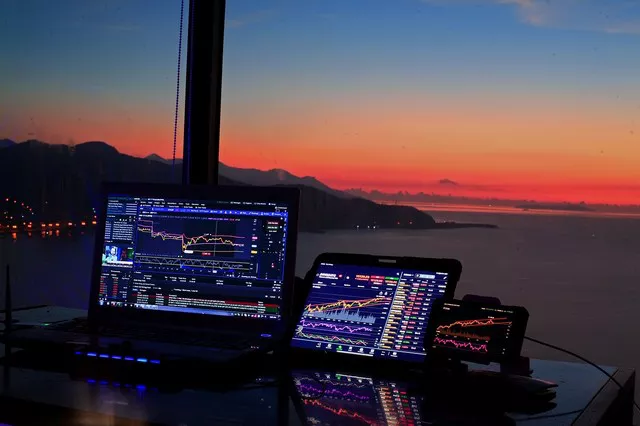Futures trading offers investors an opportunity to participate in various markets, including commodities, currencies, and indices. Interactive Brokers, a leading brokerage platform, provides a robust and comprehensive platform for traders to buy and sell futures contracts. In this article, we will guide you through the process of buying futures on Interactive Brokers, ensuring you have a solid understanding of the steps involved and the features available on the platform.
Getting Started with Interactive Brokers
Account Setup:
Registration Process: Create an account with Interactive Brokers by providing the necessary personal and financial information.
Account Types: Choose the appropriate account type based on your trading objectives, such as individual, joint, or corporate accounts.
Account Funding: Deposit funds into your account to meet the minimum margin requirements for futures trading.
Research and Education:
Familiarize Yourself with Futures: Learn the basics of futures trading, including contract specifications, trading hours, and margin requirements.
Platform Navigation: Explore the Interactive Brokers trading platform and become familiar with its features, including charting tools, order types, and market data.
Educational Resources: Take advantage of the educational materials provided by Interactive Brokers, such as webinars, tutorials, and documentation, to enhance your trading knowledge.
Understanding Futures Contracts
Contract Selection:
Market Analysis: Conduct thorough market research and analysis to identify the futures contracts that align with your trading strategy and objectives.
Contract Specifications: Review the contract specifications, including contract size, expiration dates, tick size, and trading hours, to ensure they meet your requirements.
Symbol Lookup: Use the Interactive Brokers platform’s symbol lookup tool to find the specific futures contract you want to trade.
Placing a Futures Order:
Order Types: Choose the appropriate order type based on your trading strategy, such as market orders, limit orders, or stop orders.
Quantity and Price: Determine the quantity of contracts you wish to buy and set your desired price level.
Order Validation: Review and validate your order details before submitting it through the Interactive Brokers trading platform.
Risk Management and Monitoring
Margin Requirements:
Initial Margin: Understand the initial margin requirement for the futures contract you are trading and ensure you have sufficient funds in your account to meet it.
Maintenance Margin: Monitor the maintenance margin level and be aware of the margin calls that may require additional funds to avoid liquidation.
Risk Assessment: Regularly assess your risk tolerance and adjust your position sizing accordingly to manage potential losses.
Stop Loss and Take Profit Orders:
Setting Stop Loss: Implement stop loss orders to limit potential losses by automatically selling your futures position if the market moves against you.
Take Profit Orders: Use take profit orders to secure profits by automatically selling your futures position when the market reaches your desired price level.
Trailing Stops: Consider utilizing trailing stops, which adjust your stop loss level as the market moves in your favor, allowing you to lock in profits while giving the trade room to develop.
Continuous Learning and Improvement
Reviewing Trade Performance:
Trade Analysis: Regularly review your trade performance, analyzing both successful and unsuccessful trades to identify patterns and areas for improvement.
Journaling Trades: Keep a trading journal to record your trade entries, exits, and the rationale behind each trade, helping you refine your strategy over time.
Learning from Mistakes: Learn from your mistakes and seek feedback from experienced traders or mentors to enhance your trading skills.
Utilizing Simulation Accounts:
Demo Trading: Practice trading futures on Interactive Brokers’ simulation accounts to test new strategies, gain experience, and build confidence without risking real capital.
Backtesting: Utilize historical market data to backtest your trading strategies on the Interactive Brokers platform, evaluating their performance under different market conditions.
Paper Trading Competitions: Participate in paper trading competitions hosted by Interactive Brokers to challenge yourself and compare your performance with other traders.
Conclusion
Buying futures on Interactive Brokers is a straightforward process that requires careful consideration of contract selection, risk management, and continuous learning. By following the steps outlined in this comprehensive guide, you can confidently navigate the platform, make informed trading decisions, and optimize your potential for success in futures trading. Remember, disciplined risk management, ongoing education, and a systematic approach are key to achieving long-term profitability in the futures market.

